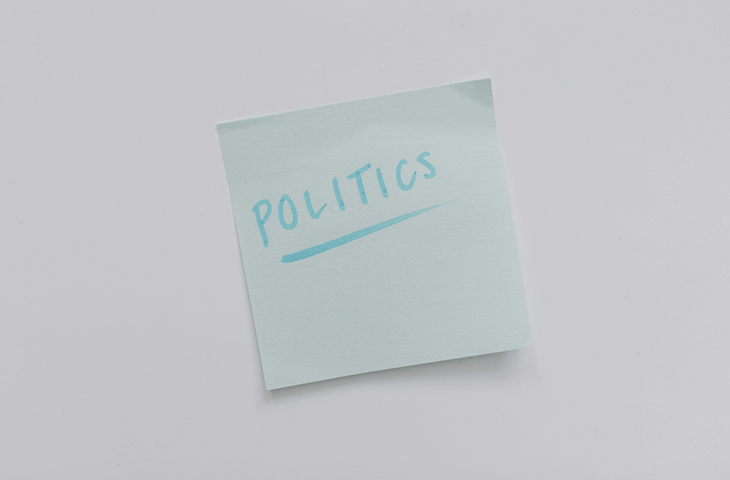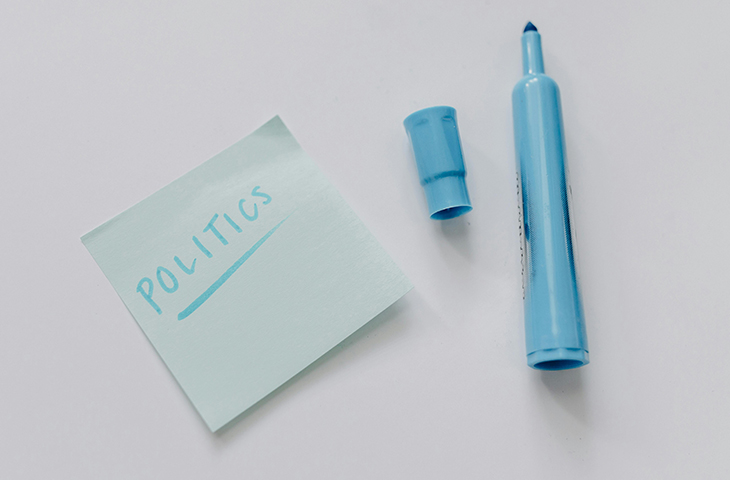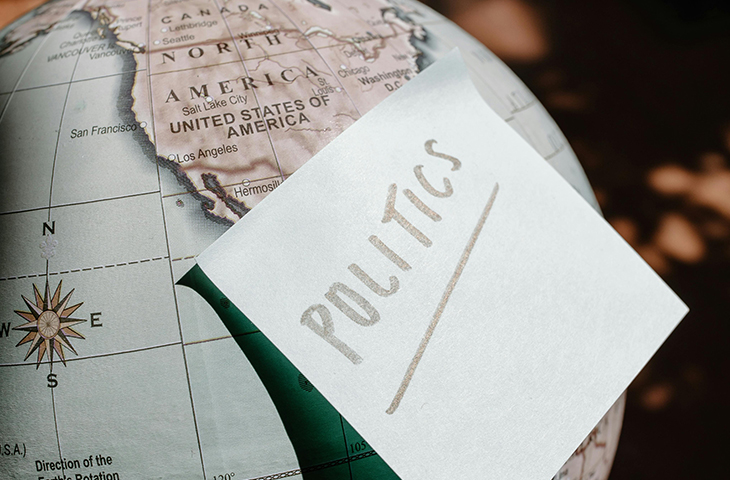What The Polls In Canada Are Really Saying

Conservatives in Canada could be forgiven for celebrating earlier this year. Their nemesis Justin Trudeau announced that he wasresigning as prime minister, and polls showed they would romp to victory over the Liberals whenever the election was called.
Except one longtime Canadian pollster soon began to see a different story.
Beginning in January, Frank Graves started to notice a sudden and unexpected downward trend for Conservatives. At the time, Graves was ridiculed online for his observations, especially because of his reputation as a Liberal supporterstrongly opposed to Conservative Leader Pierre Poilievre.
But as Donald Trump talked more and more about tariffs and annexing Canada, Graves — and the rest of the country — watched as the Conservative Party’s 25-point lead evaporated. Now, Graves predicts a comfortable win for Mark Carney and his fellow Liberals.
“This is unprecedented,” Graves said in an interview with POLITICO Magazine. “I have never seen a transformation of our voter landscape in Canada of that nature.”
Ahead of the April 28 election, Graves explained how he detected the early stirrings of Conservatives’ downfall and why Liberals were able to tap into the Canadian political zeitgeist in the new Trump era.
This interview has been edited for length and clarity.
You were one of the first people to detect that the Conservatives’ popularity might be fading in January. What were your surveys telling you? And what did you see that others didn’t?
We started seeing some movement at the beginning of this year. We had the Conservative Party with a 25-point lead, which is a massive lead in our system. At that point, we had the Liberals, who were the incumbent, at a historic, at least in the 21st century, low of 19 points, basically tied with the [more left-leaning National Democratic Party] at that point. Since then, we have seen a straight line movement — it's been interrupted, plateaued a bit in the last few weeks, at this point it just can’t keep going up. But the 25-point lead was erased.
Now, nobody else saw that, so I faced a lot of skepticism and criticism. Conservatives were unhappy to see a race that looked like they could just sip beer and cut the engines and cruise to a majority, and all of a sudden, I see this narrowing.
The Liberals in my latest numbers, they would get a massive 200-seat majority. Now I think there’ll probably be a little fall back, but they’ll have a big cushion. This is unprecedented. I have never seen a transformation of our voter landscape in Canada of that nature.
This isn't well known, but we have been assembling data on a daily basis for over six months, as we do in the lead up to every election, certainly to get enough cases so that we can look at what's going on in micro-regions. So unlike a lot of our competitors — they'd have maybe 200 cases a week, and they'd roll it up every month — we were doing 300 cases a day. So it provided a lot more agility in terms of being able to see any transient responses or shifts. But there was a lot of skepticism, including a lot of people who said, “Graves is making this stuff up. This is like an attempt to manipulate voters.”
How much of the election results are going to be due to Donald Trump?
The biggest factor by far is President Trump and the shock and awe at announcements that we heard, not just about annexation and tariffs, which certainly got everybody's attention, but also just the general flavor and the cavalcade of announcements — whether it was, “Yeah, we're going to build a resort in Gaza,” and “We're going to give part of Ukraine back to the Russians, and we may not bother talking to Zelenskyy,” and the appointment of Robert F. Kennedy Jr.
I asked people, do you think that the Trump administration has been about what you expected, much worse or much better. And look, the yardstick wasn't very high. Canadians weren't expecting it was going to be great, but by an overwhelming majority, they said, “Oh no, this is way worse than we thought.” And so it produced this recoil effect in Canada. And national identity, which had been at a 35-year low, started going up as Canadians kind of got “Oh, they're going to annex us?” It produced this really dramatic rise in national attachment, which is the main factor that propelled the Liberals to their elevated position.
An interesting phenomenon here is that the same forces which produced Trump the first time and Brexit are very much at play in Canada. We measure — we don't like to label right-wing authoritarian populism, but that's what it's called by many — we measure that with some simple questions on child-rearing preferences, like when you're raising a child, is it more important to emphasize obedience or creativity? And these measure a type of outlook which is incredibly powerful in predicting Trump support, Brexit support and the support for the Conservative Party in Canada. It wouldn't have been a good predictor a decade ago. This is a huge new force.
Another major force which interacts with that is disinformation. The average Conservative supporter is not a little more likely to approve of Trump. They're 25 times more likely. They're 25 times more likely to have a favorable outlook on the Freedom Convoy than Liberals, and they are almost on that scale more likely to believe all kinds of disinformation — for example, governments are intentionally concealing the real numbers of deaths from vaccines, or the rise in forest fires is due to activist arsonists setting them, or more favorable attitudes to Russia, beliefs that climate change is false.
About 25 percent of voters would fall into that category, all with the exception of those who voted for the People's Party, which has largely been swallowed up by the Conservatives under Mr. Poilievre. They look a lot like Trump voters.
But for Mr. Poilievre to get to the 45 points — he attracted 20 percent of voters who didn't share those characteristics. They weren't institutionally mistrustful. They were status quo conservatives. They were lapsed liberals who are sick of Trudeau, and they don't believe that climate change is a hoax, and they like the country. That's where a lot of the growth for the Liberals happened. Some of those started coming back.
What kind of advantage does that provide to Carney then?
Carney is more likely to be seen as competent and trustworthy in areas which historically are not good areas for Liberal leaders.
The dominant issue is, how do we negotiate future trade relationships with the United States and all those sorts of issues around tariffs. And he has a very large advantage on that, but he also has an advantage on being better able to grow the economy, better able to deal with productivity issues, better able to deal with inflation.
These are areas that normally the Conservatives in Canada, like the Republicans of the United States, have built an advantage. But that's not there for Mr. Poilievre anymore.
How has Poilievre responded to this?
Mr. Polievre had been nurturing a lot of these populist forces quite effectively. He had run a very disciplined campaign, “Trudeau bad, Canada's broken, axe the tax,” which he repeated like a mantra with discipline and effectiveness. It worked well, but all of a sudden, as Canadians are recoiling from this existential threat to our sovereignty, that stuff started ringing hollow for a lot of Canadians, and he had trouble pivoting. First of all, it's hard to abandon a framework which has been really effective when you're that close to winning the government.
But the second problem was that he was compromised, because within his core constituency, this 25 percent, they weren't alarmed by these things. They liked Trump. They didn't think it would be a bad idea if we were to become the 51st state. And so it became difficult for him to restyle himself as Captain Canada. I think it made it much more difficult for him to pivot. And they've tried a lot of things. They've tried labeling Carney as another Trudeau. That's not penetrating. They’ve tried going after him on an ethics issue. But in our testing on this stuff, they haven't figured out a message that's really resonating.
I’d like to talk about the polling industry itself, which has been in a bit of a crisis in the U.S. How has it fared in Canada?
It's actually pretty favorable in Canada, much more so than in the United States. There are obviously people that are skeptical of polling, but the general public, they're more positive than they are negative. And it's not going down.
I would point out that the track record of Canadian pollsters has been pretty good. The misses that you experienced in 2016, with the first Trump election, we haven't had those. The Canadian pollsters, for the most part, have predicted at least the winner of the last several elections in Canada. So we actually have a pretty good track record of getting the answers right. That might be why there's more trust.
According to your research, what can we expect from this race? What are some emerging trends?
I just asked Canadians what is their dominant emotional outlook on this election. I ask this every election. I remember talking to Stanley Greenberg, who was a Clinton pollster — he’s won a few elections, he’s pretty good at it — and he told me, “Frank, there's three things that win an election. Number one is emotion, number two is emotion and number three is emotion.” So you get the point. It's pretty important.
I asked people: Do you feel hopeful, do you feel despair, do you feel anger or do you feel fear? And things like anger can be very motivating, but so can hope. And despair isn't. If you feel despair, you're probably not going to bother voting.
What I saw was that the overall outlook on this election — and I know that before this, it was not hopeful — shifted to hope. Even though Canadians were very, very anxious and worried about tariffs and annexation and what the New World Order might look like and how they would fit into it, they actually had a really huge resurgence of hope.
It says yeah we'll do what it takes to maintain our sovereignty and to reforge relationships in a world that's going to be a lot different, and we know it's going to be painful and risky, but we feel optimistic and hopeful that we can rise to this challenge.

